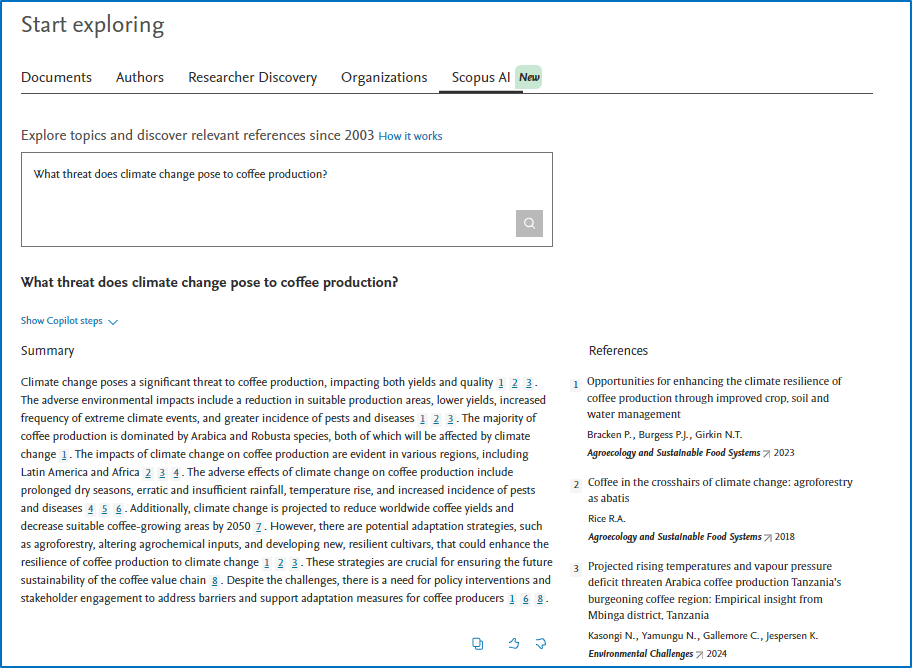Learn about the Scopus AI difference
In the year since we launched Scopus AI, we’ve heard a lot of feedback from researchers and academics about how this exciting GenAI-powered tool has revolutionized the discovery process. Now, we want you to hear from the developers themselves about the features that set Scopus AI apart.
In this short video, you’ll meet a team that is committed to constantly innovating to serve the research community – because Scopus AI is informed by a dedicated team, engaged user base, and curated content.
“We built Scopus AI with a clear mission,” says Adrian Raudaschl, Principal Product Manager at Elsevier. “We wanted to make it much easier for researchers and academics to explore new areas and find opportunities. This wasn’t about just putting AI on our existing tools. This was an opportunity to rethink the discovery process.”
Built on the back of proprietary technology like RAG fusion, Scopus AI’s responses ensure depth and quality. Because all of the results are based on the Scopus database – the world’s largest curated abstract and index database, drawing on more than 27,000 peer-reviewed journals and covering 330 disciplines – Scopus AI provides more trustworthy and comprehensive responses than other AI search tools.
The latest Scopus AI feature, Copilot, optimizes your query in real time by utilizing both vector and keyword searching. It can handle more specific and complex queries, and also translates foreign language questions into English, breaking down barriers across interdisciplinary research.
The Copilot feature is the latest in a series of refinements and upgrades to Scopus AI, including:
- Foundational documents, which highlights the most important papers in a given discipline
- The Concept map, which visualizes key relationships between topics and enables researchers to understand complex subjects at a glance
- Topic experts tosSupport collaboration with options for discovering experts
We know about the many concerns surrounding GenAI tools, and the possibility they provide hallucinations or incorrect responses. That’s why Scopus AI was developed in accordance with Elsevier’s responsible AI principles, and always shows its work as transparently as possible.
In the video, you’ll also hear from Henry Cleland (Elsevier’s Director of Software Engineering – Knowledge Discovery), Wiebke Krasting (VP of Data Engineering) and Harry Muncey (Senior Director – Data Science and Responsible AI). It’s a wonderful opportunity to get to know the people behind Scopus AI, and what motivated them to develop this tool in tandem with the research community.
Start your research journey with Scopus AI today.


